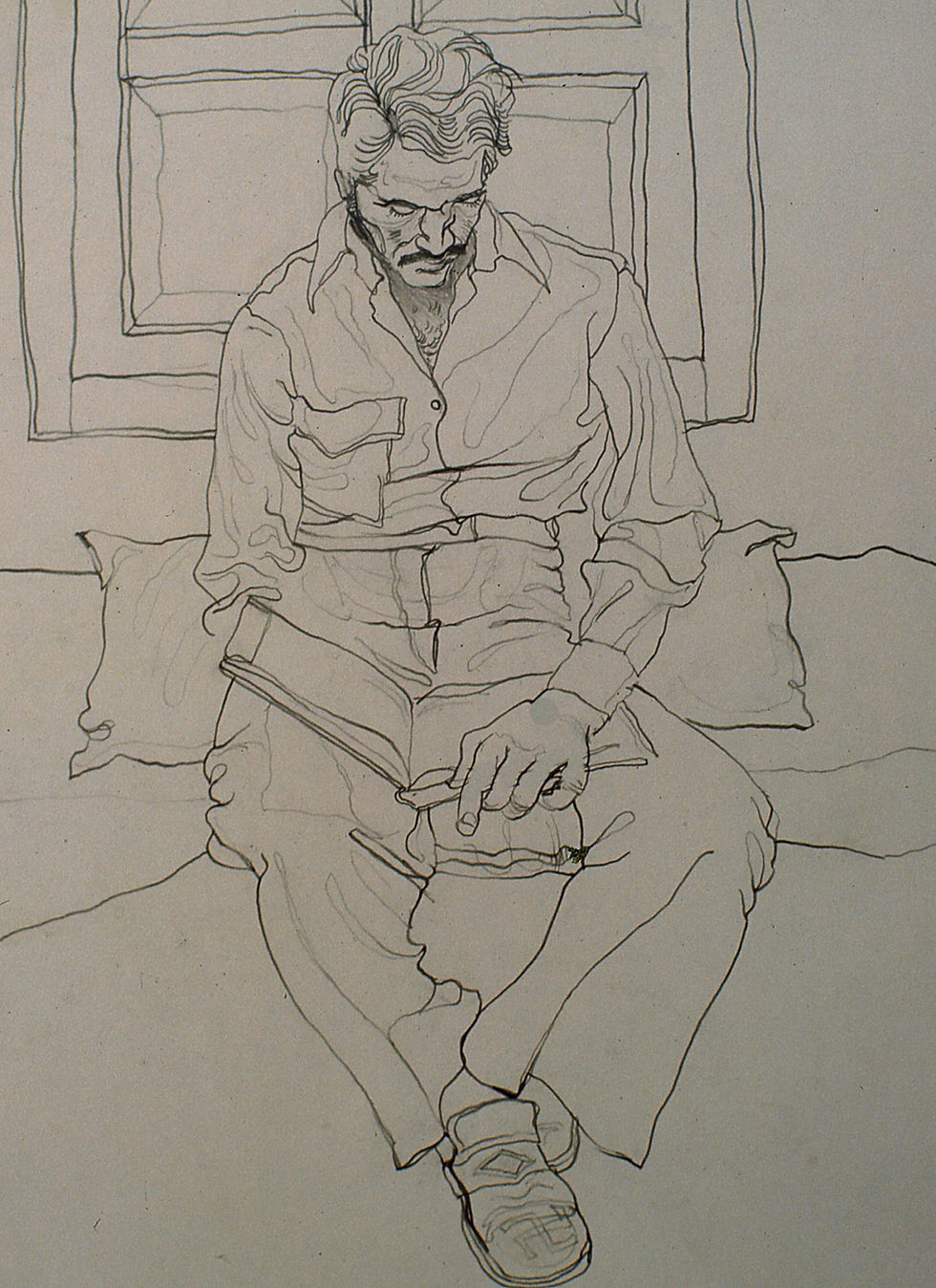The Great, Blue Dream
- The Aleph Review
- Mar 5, 2020
- 2 min read
Dua Abbas Rizvi
Excerpted from 'The Great, Blue Dream' by Dua Abbas Rizvi that first appeared in The Aleph Review, Volume 2 (2018).
Saeed’s drawings usually show young men in enclosed spaces—dormitories, studios, cafeterias, offices, unspecified interiors—and, though frail and linear, they are very much a part of this world, the world of the living, the quotidian world of homework and exams and the pleasurable demands of a first job and a sad kind of after-work leisure that involves TV and cigarettes and inside jokes amongst young men.

Their lives are unsettled, their nights are long, they discuss—with the fervour of the newly enlightened—philosophy and art, recumbent on their floor mattresses, their youth too big and full of their cramped and temporary lodgings.
Their satchels lie in corners and quits and coverings escape from under their feet to curl around their empty shoes in scenes of bachelorly disorder.
And Saeed, with the observation of a fiction writer and the imagination of a poet, draws them out. As with the short stories of D.H. Lawrence and Alice Munro, entire narratives are formed around, and histories attached to, the littlest gestures and bodily movements, and quirks of bearing and posture.

Dua Abbas Rizvi is a visual artist and writer based in Lahore, Pakistan. She graduated from the National College of Arts, Lahore, in 2010 with a Distinction in Painting and was awarded the Shakir Ali Award and Sir Percy Brown Prize for excellence in fine art and history of art. Her work has been exhibited nationally and internationally in shows that include Maps of Skin and Spirit (Canvas Gallery, Karachi), Elegies, Effigies (Taseer Art Gallery, Lahore), Vast Narratives (Rohtas Gallery, Islamabad), Choreographed Encounters (IVS Gallery, Karachi), Pakistan Art Today (Art Junction, The Lalit New Delhi) and New Visions (Mussawir Art Gallery, Dubai). Rizvi has written on art and culture for Dawn, Herald, ArtNow, The Friday Times, Libas International (Pakistan), and teaches drawing, painting and art theory at the NCA, Lahore.

Commentaires